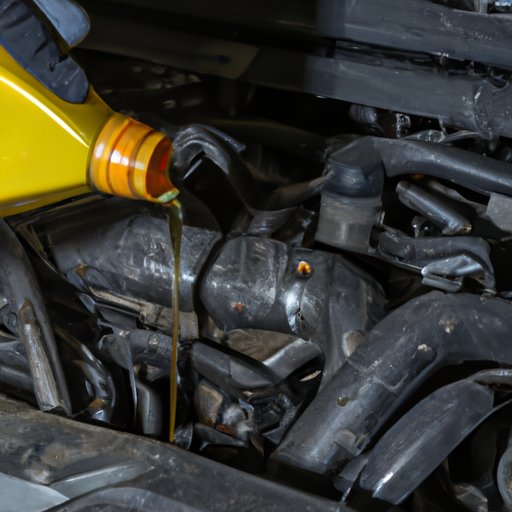
Introduction
Regular oil changes are critical to the health and performance of your car’s engine. Despite their importance, many drivers neglect oil changes, putting the health of their vehicle at risk. In this guide, we’ll explore what happens when you don’t change your oil, the recommended oil change intervals, DIY options, synthetic oils, costs, and emerging trends in automotive engineering.
Signs Your Car Needs an Oil Change
Oil changes are important because they help keep your engine running smoothly by lubricating its many moving parts. Over time, oil breaks down and can become contaminated with dirt and debris. This can cause your engine to work harder, reducing fuel efficiency and potentially damaging engine components. Symptoms that suggest your car is due for an oil change include unusual noises, decreased fuel efficiency, and a flashing oil warning light. Paying attention to these signs can help prevent serious engine damage.
Consequences of Neglecting Oil Changes
Neglecting regular oil changes can have serious consequences for your car’s engine. Over time, oil breaks down and loses its ability to lubricate moving parts effectively. This can cause increased engine wear, decreased performance, and even complete engine failure. Real-world examples of the negative impact of skipping oil changes include seized engines and blown pistons. Neglecting oil changes can be a costly and potentially dangerous mistake.
Recommended Oil Change Intervals
To keep your engine running smoothly, it’s important to change your oil regularly. The recommended timeline for oil changes varies depending on factors such as vehicle make and model, driving conditions, and oil type. As a general rule, most manufacturers recommend changing your oil every 5,000 to 7,500 miles. Following these recommendations can help protect your engine and improve its performance and longevity.
DIY Oil Changes
Changing your oil yourself can save you money and give you greater control over your car’s maintenance. However, it’s important to have the right tools and follow the proper procedures to avoid damaging your engine. Pros of DIY oil changes include cost savings and the ability to use premium oil. Cons include the risks of doing it wrong and the dirt and mess of working with oil. Websites and YouTube videos provide step-by-step guides on changing your car’s oil at home.
Synthetic Oil
Synthetic oil is made from chemical compounds and designed to provide better engine protection and performance than conventional oil. Synthetic oil has a longer change interval than conventional oil, improved fuel efficiency, and better engine protection. Synthetic oil is not suitable for all engines, and it is more expensive than traditional oil. It is recommended to check your vehicle’s manual before deciding whether to switch to synthetic oil.
Oil Change Costs
Oil changes are a routine part of car maintenance and can cost anywhere from $20 to $75 depending on the price of oil and the location of the service. DIY oil changes can save money if done correctly. Oil changes at a professional service center cost more but provide benefits like warranty protection and a money-back guarantee. Ways to save money on oil changes include finding coupons or specials, engaging professionals, or joining service clubs.
The Future of Oil Changes
Emerging trends in automotive engineering are changing the way we think about oil changes. Electric cars and hybrid electric cars have fewer oil service needs. Additionally, re-usable oil filters are becoming more popular. There is no doubt that these trends will continue to impact the way we service our vehicles in the future.
Conclusion
Regular oil changes are critical to the health and performance of your car’s engine. Neglecting oil changes can have serious consequences consequences, including decreased performance and complete engine failure. By following the recommended oil change intervals and paying attention to your car’s symptoms, you can help protect your engine and improve its longevity. DIY oil changes can save money if done with care, while synthetic oil provides better engine protection and performance but comes with an additional cost. Stay up to date with emerging trends in automotive engineering to help keep your car healthy.




